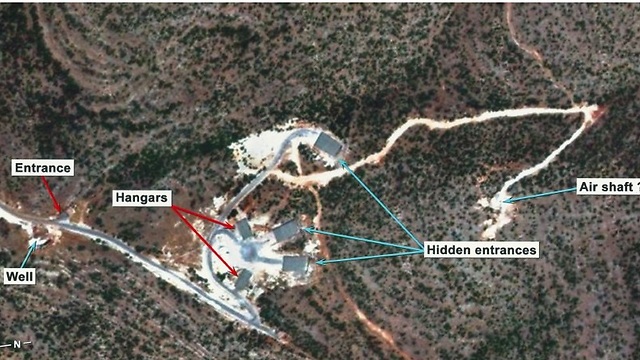US-based Institute for Science and International Security determines commercial satellite imagery can’t be used to confirm 2015 Der Spiegel report of underground reactor or uranium enrichment facility, but notes ‘some imagery observations are consistent with Der Spiegel’s reporting.’
Syria may have built an underground nuclear reactor, according to a report released Wednesday by the US-based Institute for Science and International Security.
The institute has decided to revisit a January 2015 report in the German weekly magazine Der Spiegel, according to which Syria has built an underground nuclear reactor or uranium enrichment facility.
The institute determined the report cannot be confirmed based on commercial satellite imagery.

“While (the facility) could hold nuclear or nuclear-related materials and equipment, it could also serve other military purposes. A nuclear reactor located fully underground is not impossible, but it poses a huge engineering challenge and would likely require secret, on-going assistance from North Korea,” the institute concluded.
The institute noted, however, that “some imagery observations are consistent with Der Spiegel’s reporting.”
The institute called on the International Atomic Energy Agency (IAEA) to hold an inspection at the facility, located in Qusayr.
“Although we fully understand the limitations and risks of the following approach, we believe that this site warrants inspection by the IAEA, even though accomplishing such inspections may have to wait until the Syrian conflict ends,” the institute wrote in its report.
Commenting on Israel’s decision to confirm it had destroyed the Syrian nuclear reactor in Al Kibar, the insitute said that “Israel’s action serves to highlight once again the lack of accounting for Syria’s past nuclear weapons program and the location of any assets remaining from that program. This includes possibly tens of metric tons of uranium fuel, and other equipment or materials associated with nuclear fuel fabrication and plutonium separation, that likely existed as key elements of the Al Kibar reactor project.”
The Institute for Science and International Security also raised concerns over the North Korean involvement in the Al Kibar reactor, which has been exposed by Israel in previously classified cockpit footage, photographs and intelligence documents it released about the strike.
The institute also called on the United States and its allies to bring up Pyongyang’s involvement in the Syrian nuclear program during the planned talks between US President Donald Trump and North Korean leader Kim Jong Un.
“The United States and its negotiating partners must keep in mind that any negotiation should include the achievement of verifiable commitments by North Korea not to undertake nuclear, chemical, or biological proliferation and not to spread the means to deliver them. It should also include longer term commitments by North Korea to explain and resolve the nature and extent of its nuclear cooperation with Syria and any other countries,” the institute wrote.
As reported by Ynetnews
